Home>Home Appliances>Laundry Appliances>How To Clean A Washing Machine With Vinegar
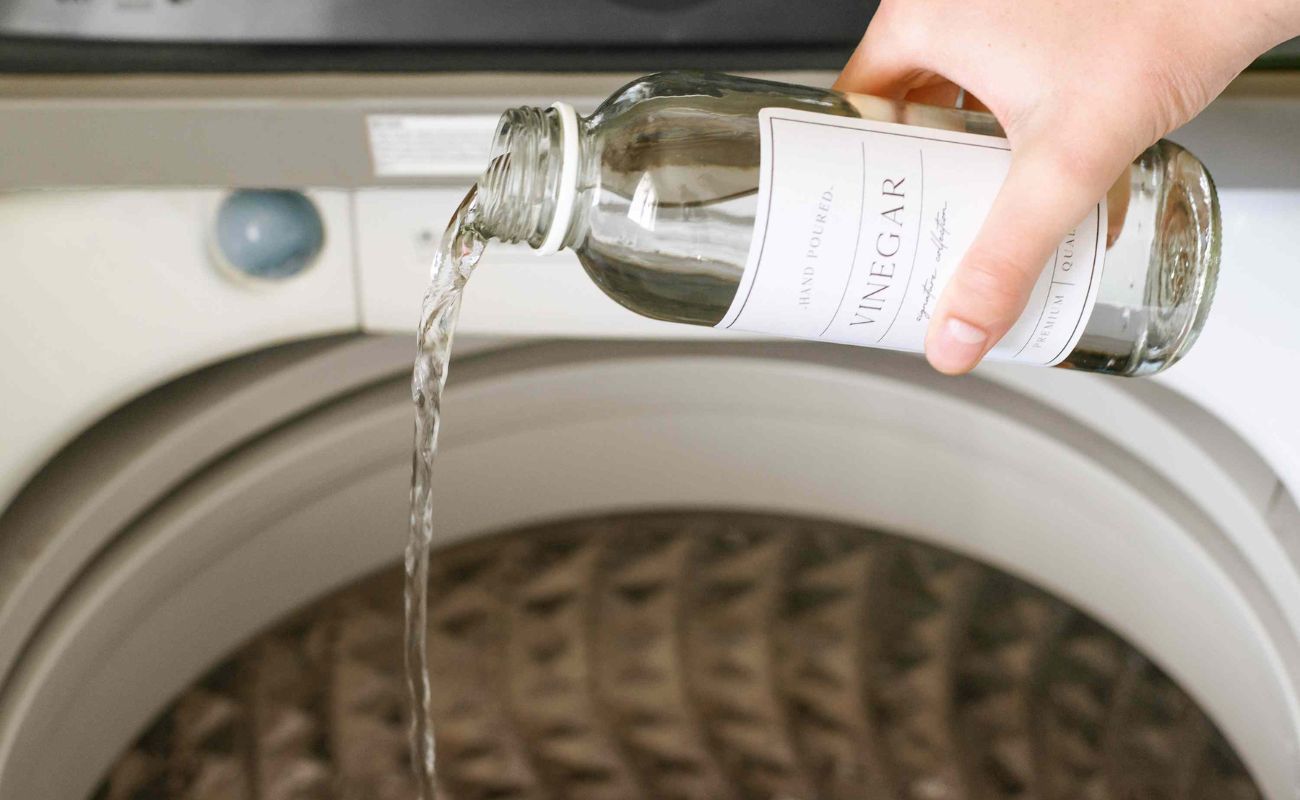

Laundry Appliances
How To Clean A Washing Machine With Vinegar
Modified: April 29, 2024
Learn how to effectively clean your laundry appliances with vinegar to keep them fresh and free from mold and mildew. Discover the best methods for maintaining a clean and odor-free washing machine.
(Many of the links in this article redirect to a specific reviewed product. Your purchase of these products through affiliate links helps to generate commission for Storables.com, at no extra cost. Learn more)
Introduction
Cleaning a washing machine may not be at the top of your to-do list, but it's an essential task to ensure that your laundry appliances continue to function effectively. Over time, washing machines can accumulate dirt, grime, and mineral deposits, leading to unpleasant odors and potentially affecting the cleanliness of your clothes. Fortunately, there's a simple and natural solution to this problem: vinegar.
Vinegar has long been revered for its cleaning properties, making it a versatile and eco-friendly option for maintaining a spotless home. When it comes to washing machines, vinegar can effectively tackle mineral buildup, soap scum, and lingering odors without the need for harsh chemicals. Whether you have a top-loading or front-loading washing machine, incorporating vinegar into your cleaning routine can help prolong the lifespan of your appliance and ensure that your laundry emerges fresh and clean with every wash.
In this comprehensive guide, we'll delve into the reasons for using vinegar to clean a washing machine, the materials needed for the task, and the step-by-step process to achieve a sparkling clean appliance. Additionally, we'll provide valuable tips for maintaining a pristine washing machine, allowing you to enjoy the benefits of this simple yet effective cleaning method for years to come. So, let's roll up our sleeves and discover how vinegar can revolutionize the way you care for your washing machine.
Key Takeaways:
- Vinegar is a natural powerhouse for cleaning washing machines, removing grime, odors, and mineral buildup without harsh chemicals. It’s eco-friendly, cost-effective, and keeps your laundry fresh and clean.
- Regularly cleaning your washing machine with vinegar, leaving the door ajar, and using high-efficiency detergent can maintain its cleanliness and efficiency. These simple steps ensure fresh, odor-free laundry every time.
Read more: How To Clean Washer With Vinegar
Why Use Vinegar to Clean a Washing Machine
Vinegar is a powerhouse when it comes to natural cleaning solutions, and its effectiveness extends to the maintenance of washing machines. Here are several compelling reasons why vinegar is the go-to choice for cleaning this essential household appliance:
-
Natural Degreaser and Descaler: Vinegar's acidic nature makes it an excellent degreaser and descaler, capable of breaking down and dissolving the buildup of soap scum, mineral deposits, and grime that accumulate in washing machines over time. This natural acidity effectively cuts through the residue, leaving the interior of the machine clean and free from obstructions that can hinder its performance.
-
Odor Neutralizer: One of the most common issues with washing machines is the development of unpleasant odors, often caused by the growth of mold and mildew in damp and enclosed spaces. Vinegar's acidic properties not only eradicate these odors but also inhibit the growth of odor-causing bacteria, ensuring that your washing machine remains fresh and clean with every use.
-
Gentle and Eco-Friendly: Unlike many commercial cleaning products that contain harsh chemicals, vinegar is gentle on the environment and safe for use in homes with children and pets. Its natural composition makes it an eco-friendly alternative for individuals seeking to minimize their environmental impact while maintaining a clean and hygienic living space.
-
Prevents Mineral Buildup: In areas with hard water, mineral deposits can accumulate in washing machines, leading to reduced efficiency and potential damage to the appliance. Vinegar's acidic properties effectively dissolve these mineral deposits, preventing them from affecting the performance and longevity of the washing machine.
-
Cost-Effective Solution: Vinegar is a cost-effective cleaning solution that offers exceptional results. By incorporating vinegar into your cleaning routine, you can achieve a sparkling clean washing machine without the need for expensive commercial cleaning products.
In summary, the use of vinegar to clean a washing machine offers a multitude of benefits, ranging from its natural degreasing and descaling properties to its ability to neutralize odors and prevent mineral buildup. This natural and eco-friendly solution provides an effective means of maintaining a clean and efficient washing machine, ensuring that your laundry emerges fresh and pristine with every wash.
Materials Needed
To embark on the journey of revitalizing your washing machine with vinegar, you'll need a few simple yet essential materials to ensure a thorough and effective cleaning process. These materials are readily available and, in many cases, already present in your home, making the task of cleaning your washing machine both convenient and cost-effective.
-
White Vinegar: This pantry staple is the star of the show when it comes to cleaning a washing machine. Opt for distilled white vinegar, which contains acetic acid, the key component responsible for dissolving mineral deposits, eliminating odors, and cutting through soap scum and grime.
-
Microfiber Cloth or Sponge: A soft microfiber cloth or sponge will be used to wipe down the interior surfaces of the washing machine. These gentle yet effective cleaning tools are ideal for removing loosened residue without causing damage to the appliance.
-
Water: While water may seem like an obvious inclusion, it plays a crucial role in diluting the vinegar and facilitating the cleaning process. Whether you have a top-loading or front-loading washing machine, water will be used in conjunction with vinegar to thoroughly cleanse the appliance.
-
Optional: Baking Soda: For an extra boost of cleaning power, consider incorporating baking soda into the process. This natural abrasive can help dislodge stubborn residue and further enhance the cleansing action of vinegar.
-
Essential Oils (Optional): If you're looking to infuse a pleasant fragrance into your washing machine, consider adding a few drops of essential oils, such as lavender or lemon, to the vinegar solution. These oils can help mask any residual vinegar scent and leave your washing machine smelling fresh and inviting.
By gathering these materials, you'll be well-equipped to embark on the journey of transforming your washing machine into a pristine and odor-free appliance. With the power of vinegar and a few simple tools, you can breathe new life into your laundry routine and ensure that your clothes emerge clean and fresh with every wash.
Run a hot water cycle with 2 cups of vinegar to clean and deodorize your washing machine. Wipe down the inside and rubber seal with a vinegar-soaked cloth.
Steps to Clean a Washing Machine with Vinegar
-
Prepare the Vinegar Solution: Begin by diluting white vinegar with water. For a top-loading washing machine, mix 2 cups of vinegar with 2 cups of hot water. If you have a front-loading machine, combine 1/4 cup of vinegar with 1/4 cup of hot water. This solution will serve as a potent yet gentle cleanser for the interior of the washing machine.
-
Pour the Solution into the Washing Machine: Carefully pour the vinegar solution into the detergent dispenser or directly into the drum of the washing machine. Ensure that the solution is evenly distributed, allowing it to reach all interior surfaces and components.
-
Run a Hot Water Cycle: Set the washing machine to run a hot water cycle. The elevated temperature of the water, combined with the cleansing properties of vinegar, will effectively loosen and dissolve any buildup, grime, and odors within the appliance. Allow the washing machine to complete the entire cycle, including the agitation and spin phases.
-
Pause and Soak: Once the washing machine has filled with the vinegar solution and agitated for a few minutes, pause the cycle. Allow the solution to soak within the machine for approximately one hour. This extended contact time will maximize the cleansing action of the vinegar, ensuring a thorough and comprehensive cleaning process.
-
Resume and Complete the Cycle: After the soaking period, resume the hot water cycle and allow the washing machine to complete the full wash and rinse cycle. This will ensure that any loosened residue and impurities are thoroughly flushed out, leaving the interior of the machine fresh and clean.
-
Wipe Down the Interior Surfaces: While the washing machine is empty, use a microfiber cloth or sponge to wipe down the interior surfaces. Pay particular attention to areas prone to buildup, such as the detergent dispenser, door seal, and drum. This step will help remove any remaining residue and ensure that the interior is immaculately clean.
-
Optional: Incorporate Baking Soda: For an extra boost of cleansing power, consider adding 1/2 cup of baking soda to the drum of the washing machine before running a hot water cycle. This natural abrasive can further enhance the cleaning action, particularly in cases of stubborn residue or lingering odors.
By following these simple yet effective steps, you can harness the natural cleaning power of vinegar to revitalize your washing machine. This process not only eliminates mineral deposits, soap scum, and odors but also contributes to the overall efficiency and longevity of your appliance. With a clean and well-maintained washing machine, you can enjoy the confidence of knowing that your laundry emerges fresh and pristine with every wash.
Additional Tips for Maintaining a Clean Washing Machine
In addition to the thorough cleaning process using vinegar, there are several proactive measures and maintenance tips that can contribute to the ongoing cleanliness and optimal performance of your washing machine. By incorporating these practices into your routine, you can ensure that your appliance remains in top condition, providing consistently fresh and clean laundry results.
-
Regular Cleaning Schedule: Establishing a regular cleaning schedule for your washing machine can prevent the accumulation of residue and odors. Aim to clean the appliance with vinegar every 1-3 months, depending on usage and water hardness. Consistent maintenance will help prevent the buildup of mineral deposits and soap scum, preserving the cleanliness of the machine.
-
Leave the Door Ajar: After completing a laundry cycle, leave the door of a front-loading washing machine slightly ajar to allow air circulation. This practice helps prevent the growth of mold and mildew by allowing moisture to evaporate, thereby reducing the likelihood of musty odors and bacterial proliferation.
-
Clean the Dispenser Drawers: Periodically remove and clean the detergent and fabric softener dispenser drawers. These compartments can accumulate residue and become breeding grounds for bacteria if left unattended. Thoroughly rinse and dry the drawers before reinserting them into the washing machine.
-
Use High-Efficiency Detergent: Opt for high-efficiency (HE) detergent specifically formulated for modern washing machines. These detergents are designed to produce minimal suds, preventing residue buildup and ensuring thorough rinsing during the wash cycle.
-
Inspect and Clean the Door Seal: The rubber door seal of front-loading washing machines can trap moisture and debris, leading to the development of mold and mildew. Regularly inspect the seal for any signs of residue or mold growth, and clean it using a solution of water and vinegar to maintain its cleanliness and integrity.
-
Monitor Water Inlet Filters: If your washing machine is equipped with water inlet filters, periodically check and clean them to prevent the accumulation of sediment and debris. Clean filters ensure a consistent flow of clean water into the machine, contributing to the effectiveness of the wash cycle.
-
Maintain Balanced Loads: Overloading the washing machine can lead to inadequate cleaning and strain on the appliance. Conversely, washing small loads in a large-capacity machine may result in unbalanced spinning. Strive to maintain balanced loads to optimize the cleaning performance and longevity of the machine.
By incorporating these additional tips into your washing machine maintenance routine, you can uphold the cleanliness and efficiency of your appliance, ensuring that each laundry cycle delivers fresh, clean, and odor-free results. With a proactive approach to maintenance and regular cleaning using vinegar, you can enjoy the peace of mind that comes with a well-maintained and hygienic washing machine.
Frequently Asked Questions about How To Clean A Washing Machine With Vinegar
Was this page helpful?
At Storables.com, we guarantee accurate and reliable information. Our content, validated by Expert Board Contributors, is crafted following stringent Editorial Policies. We're committed to providing you with well-researched, expert-backed insights for all your informational needs.
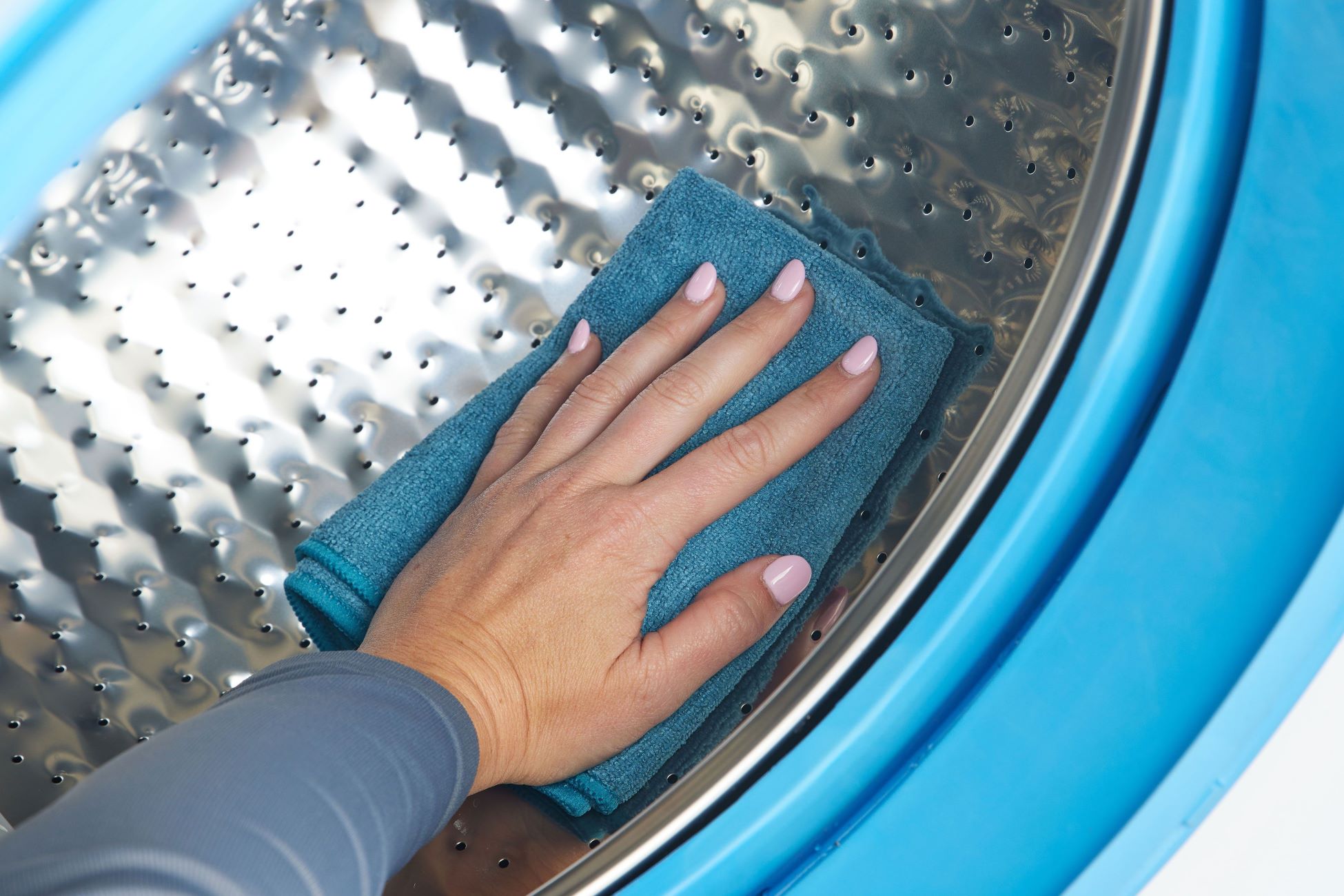
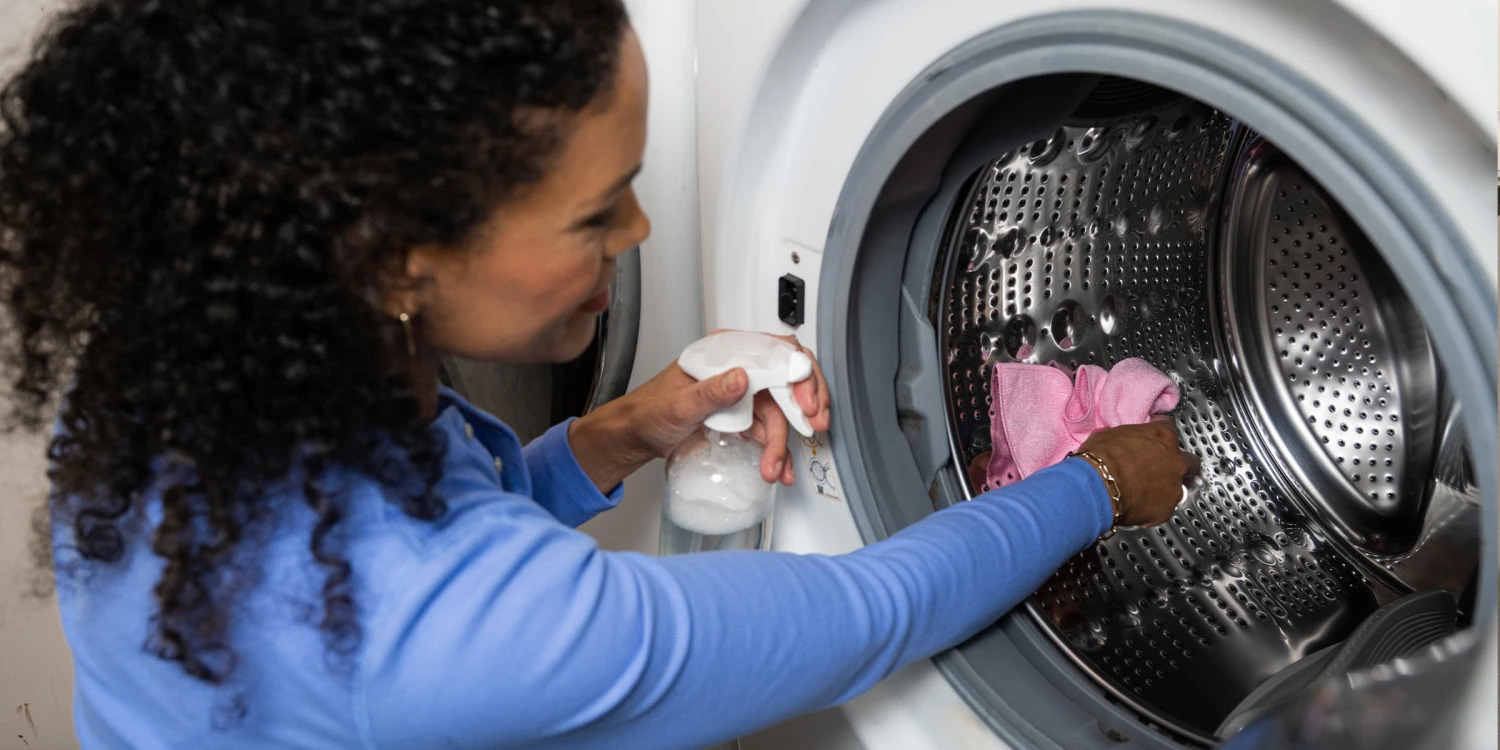
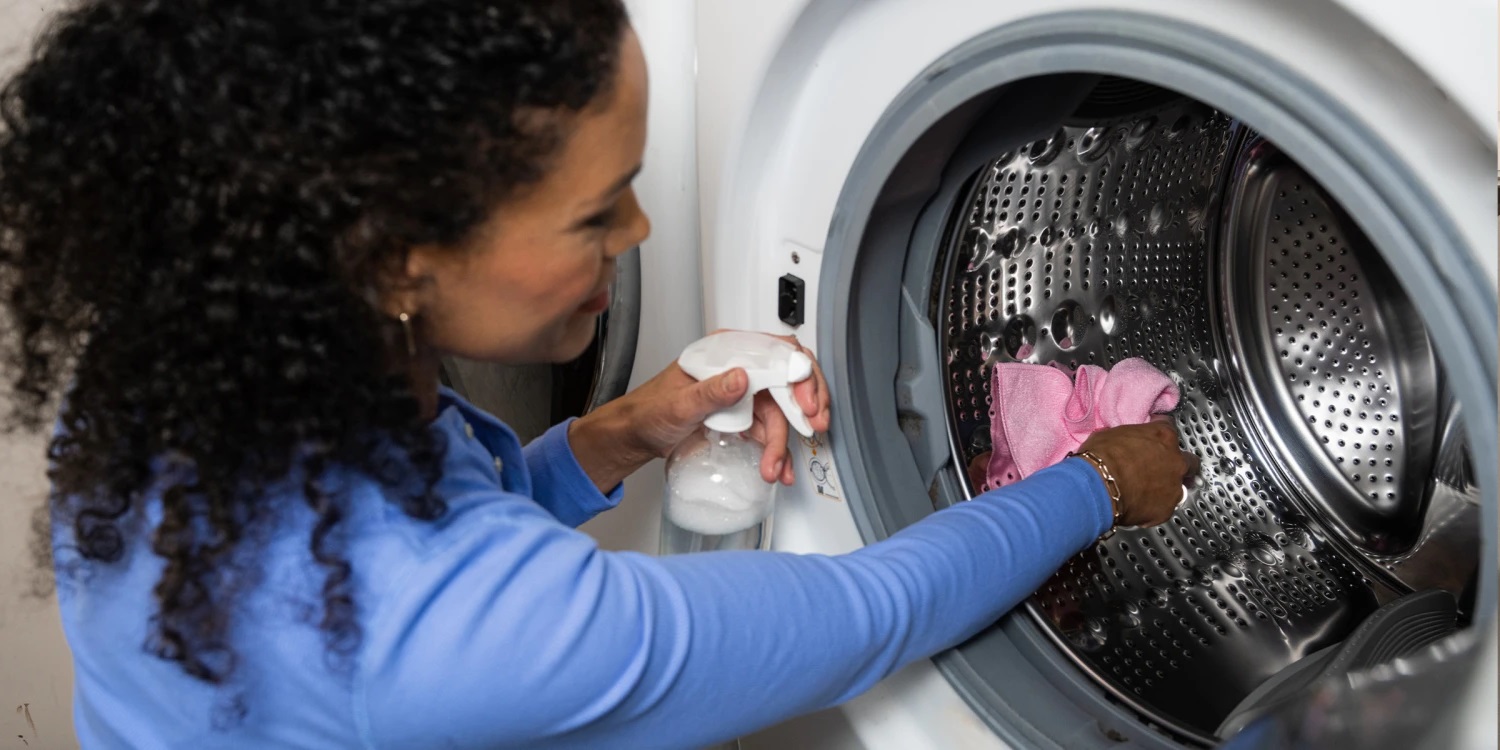
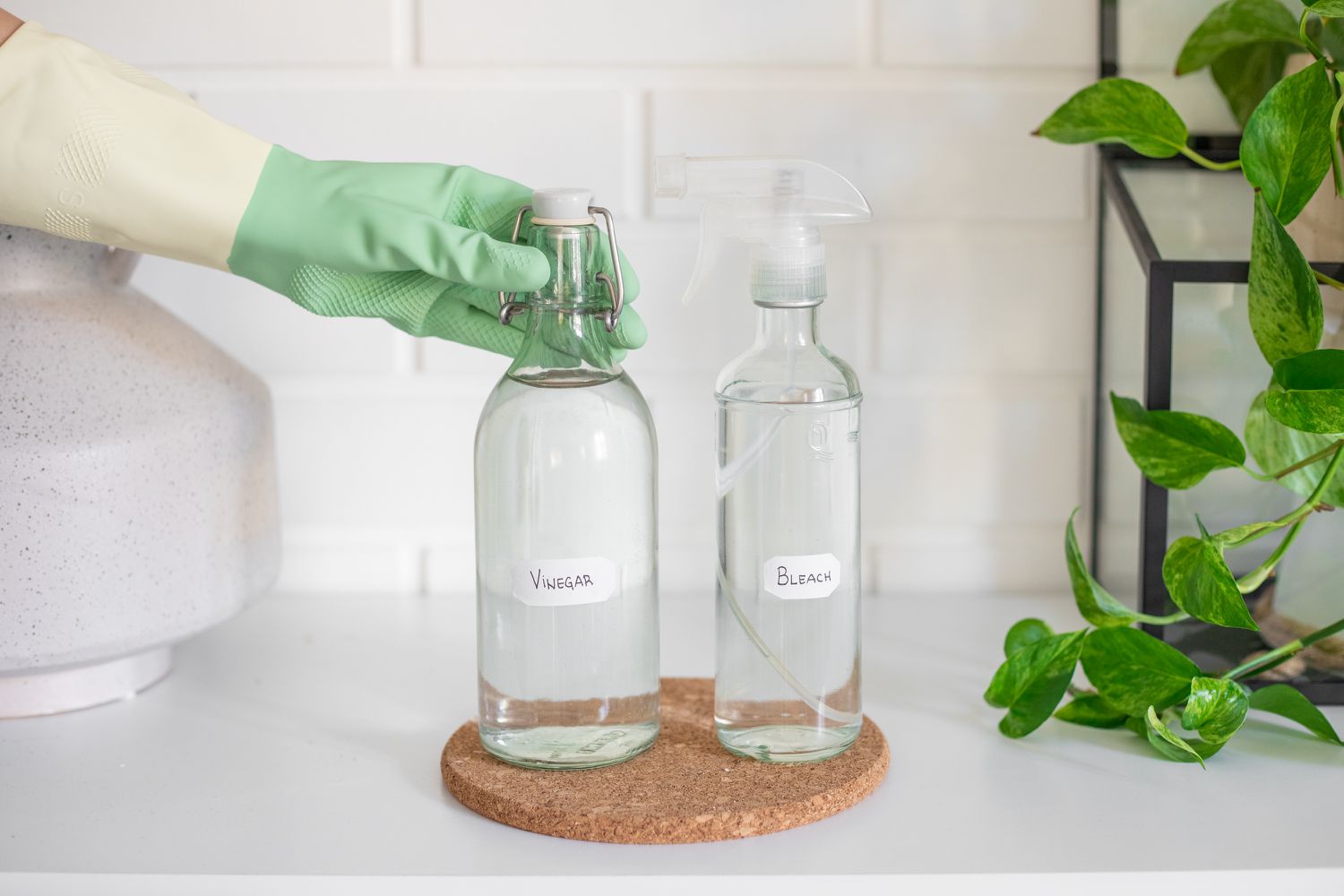
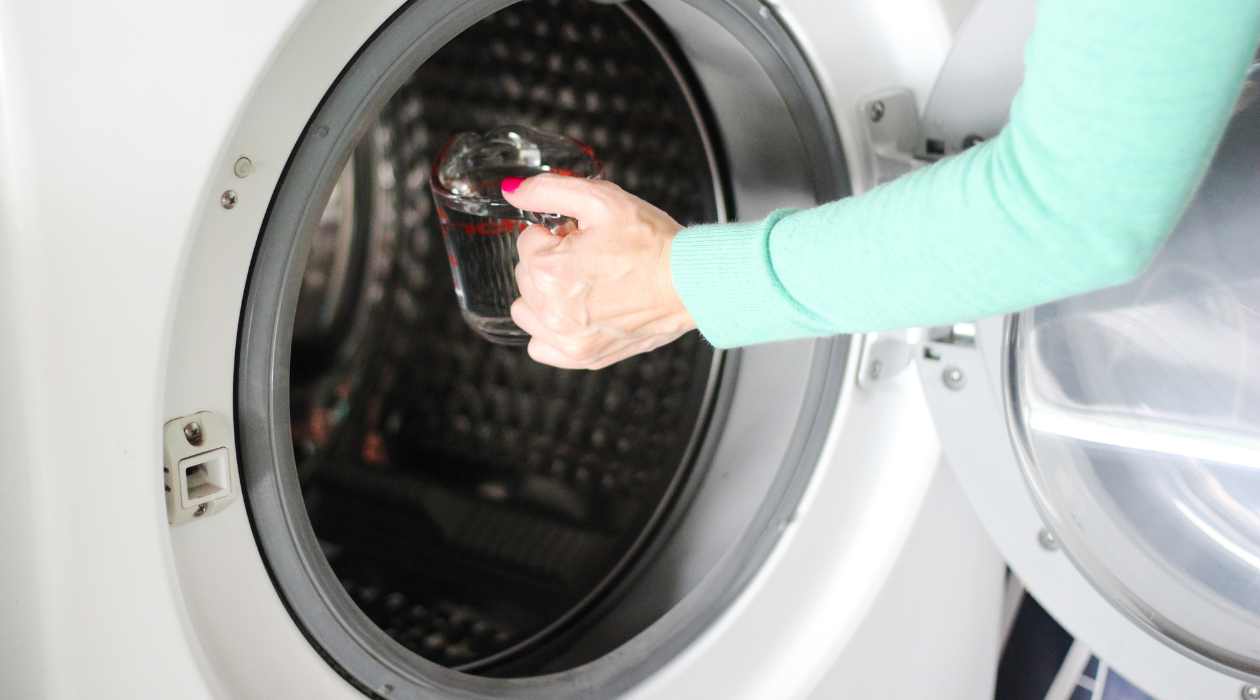
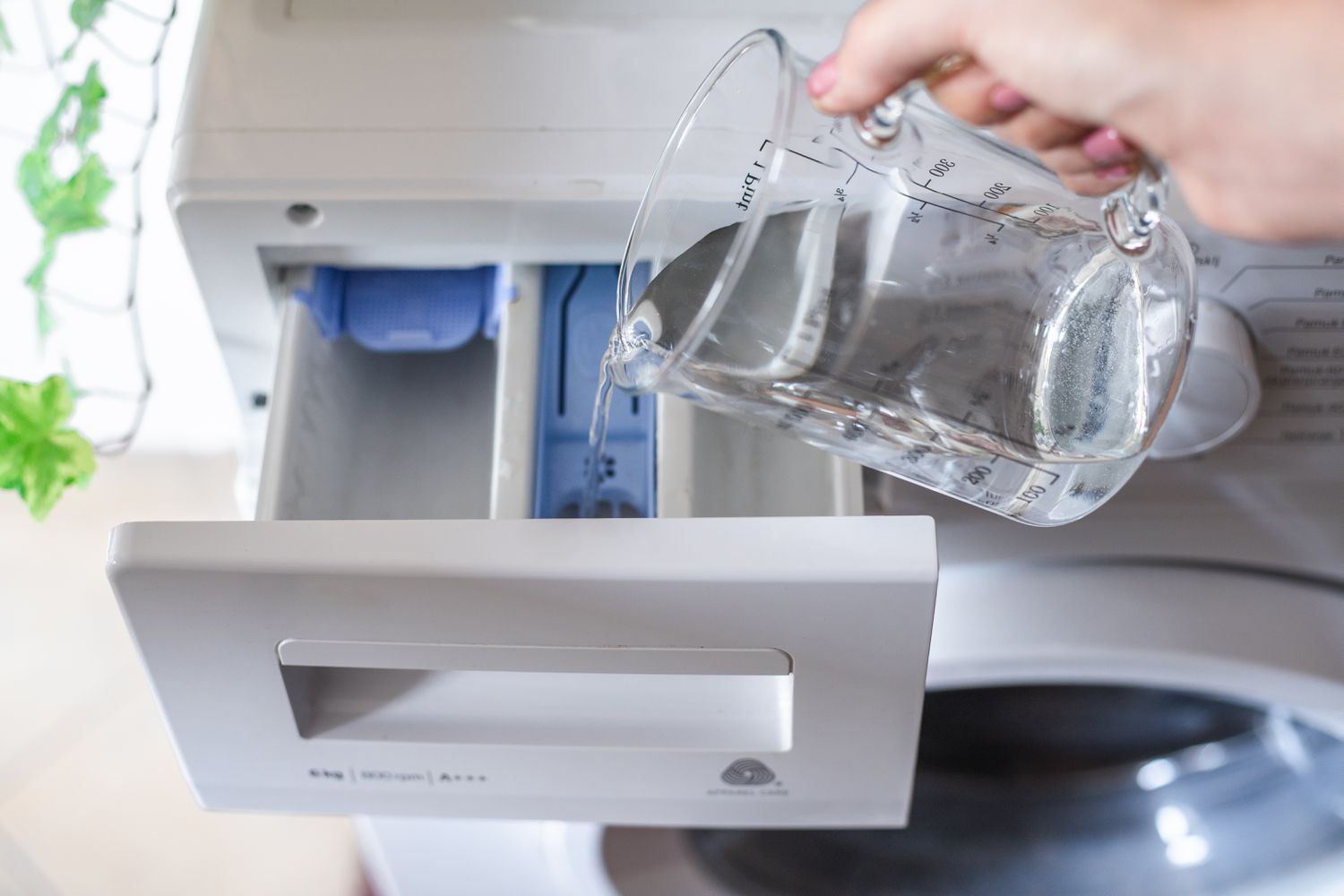
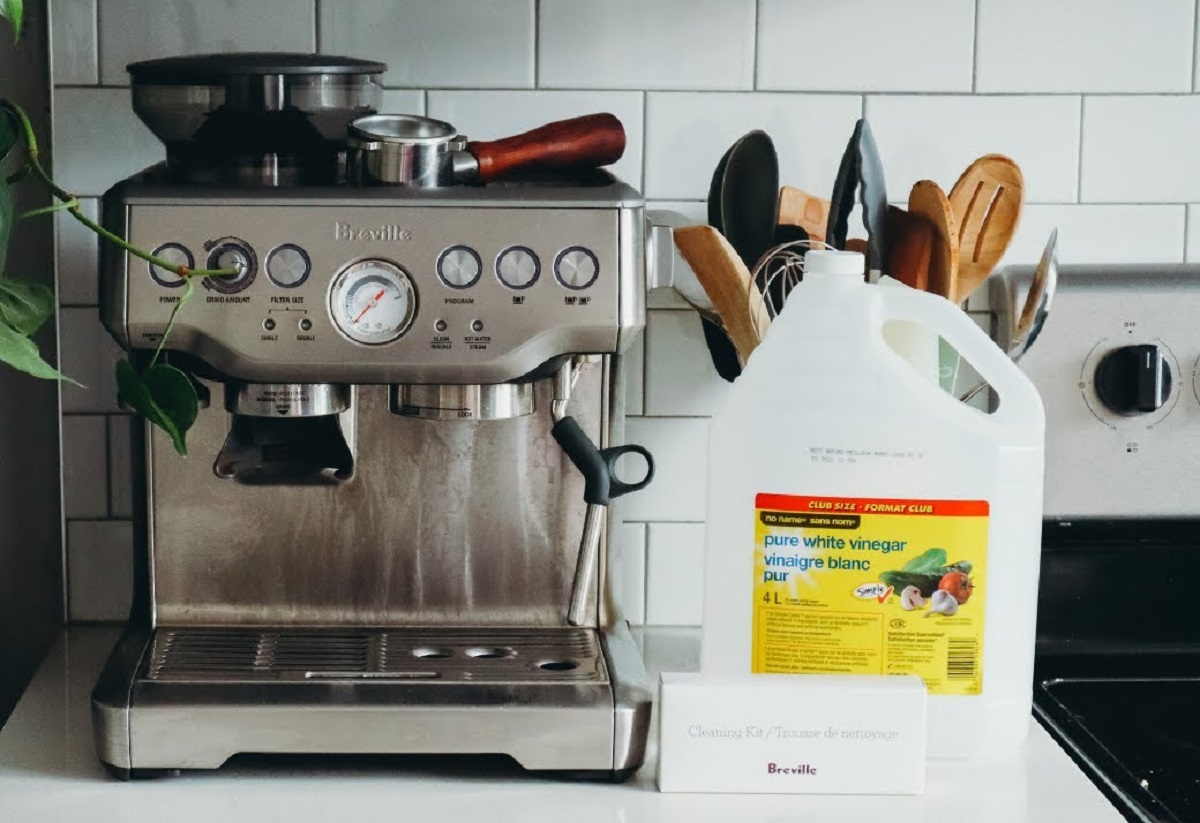
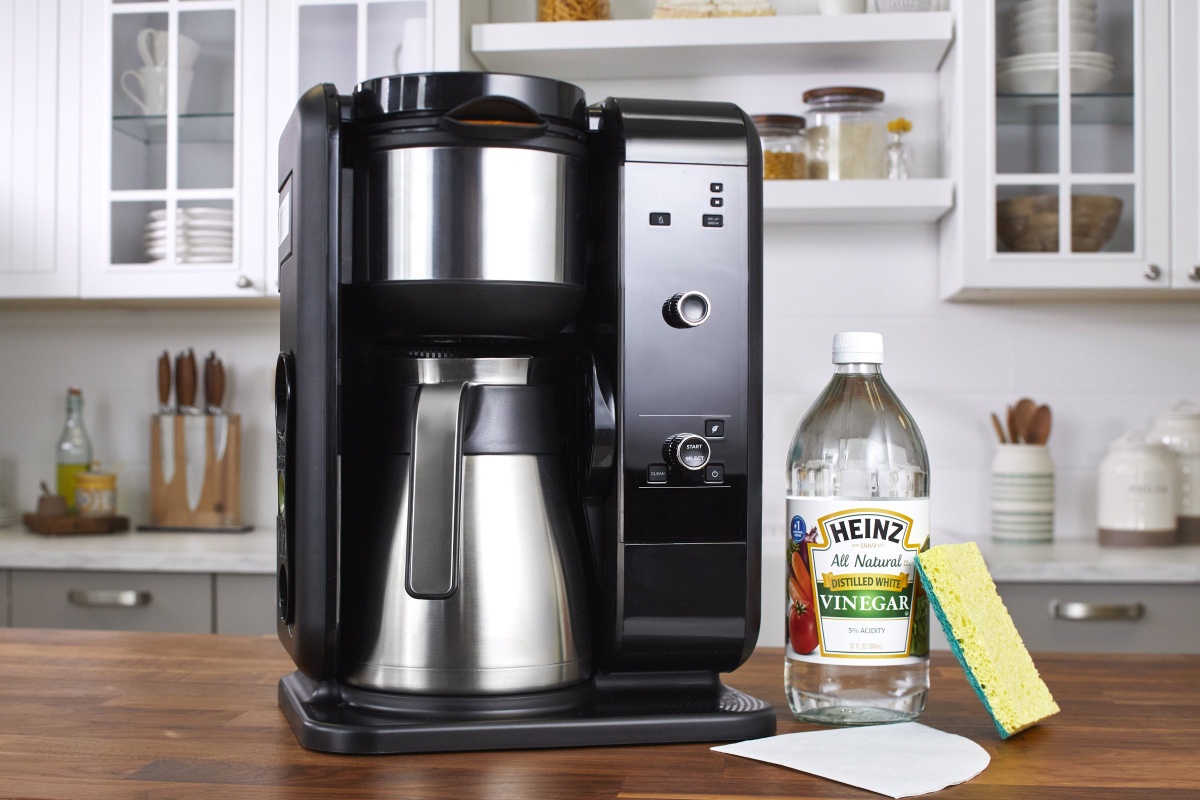
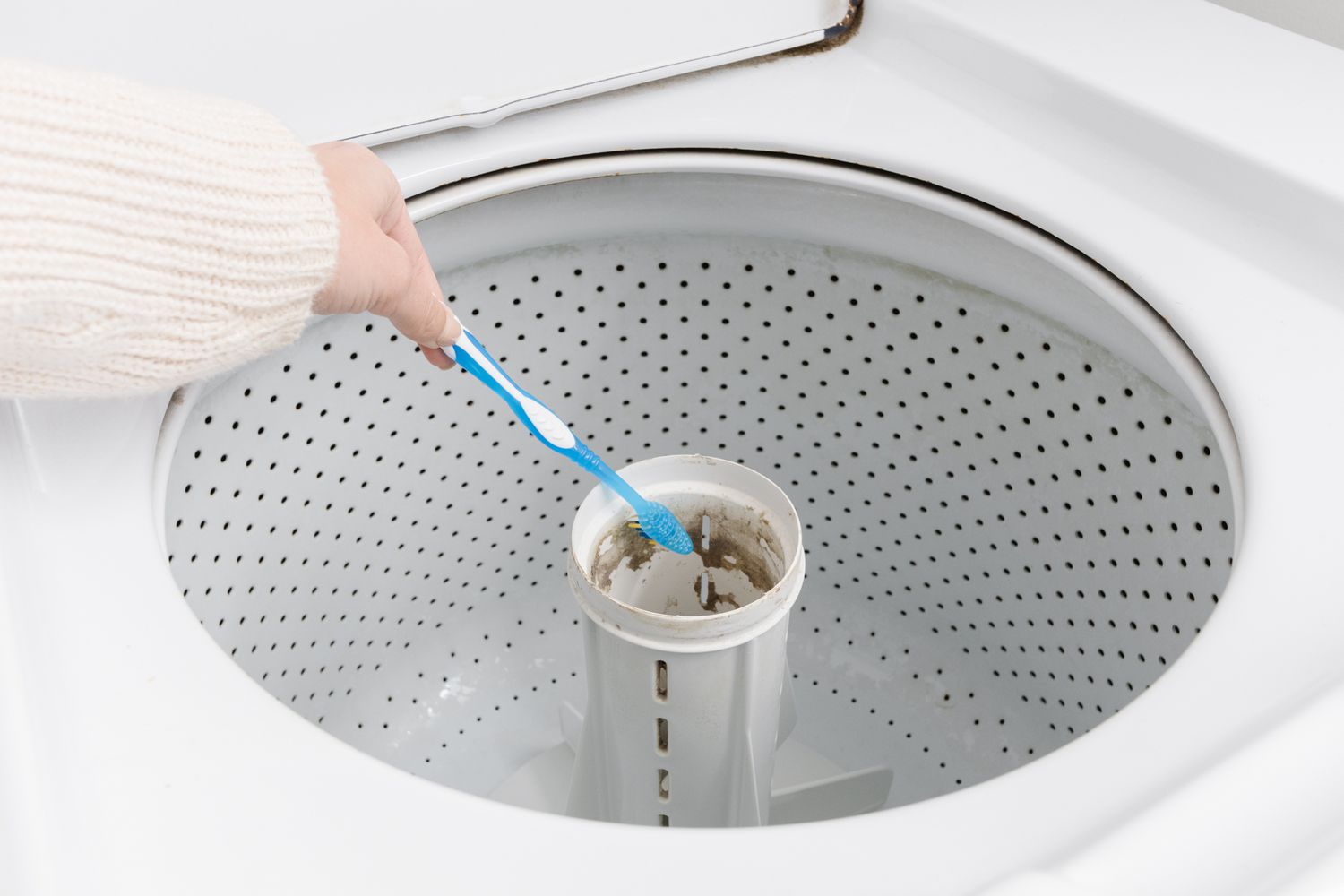
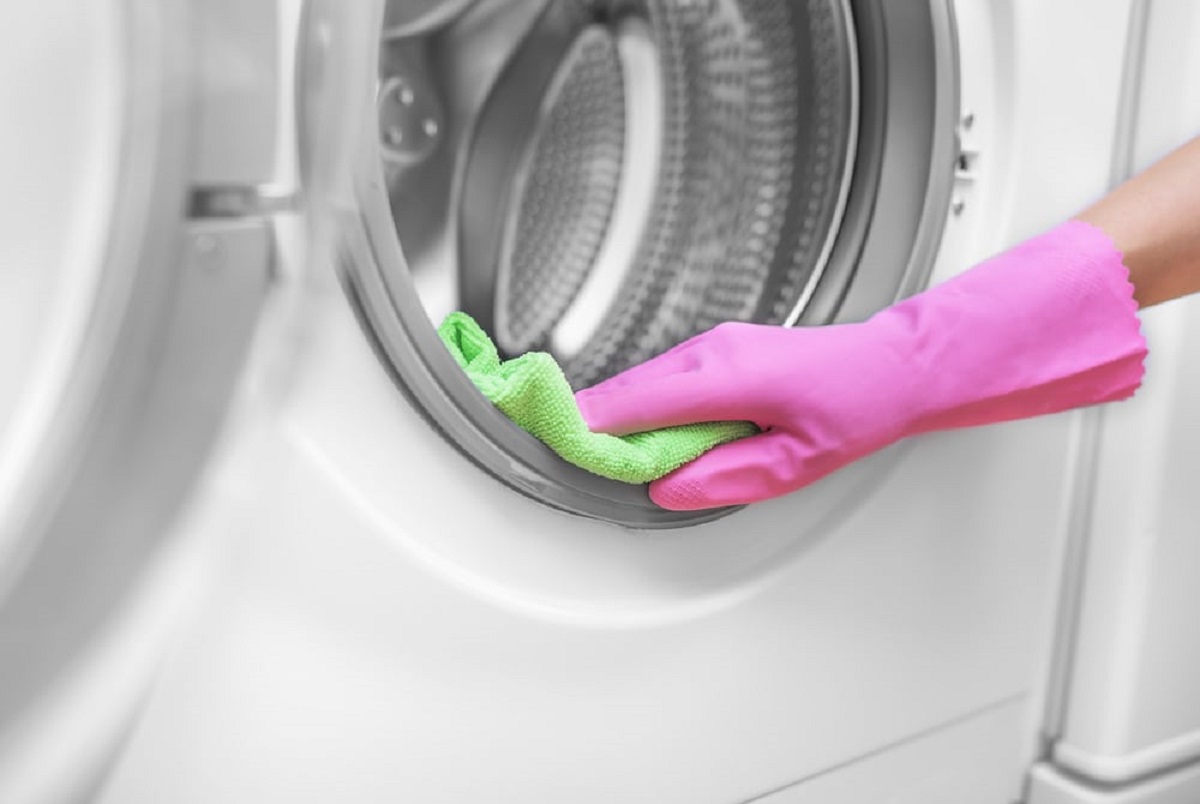
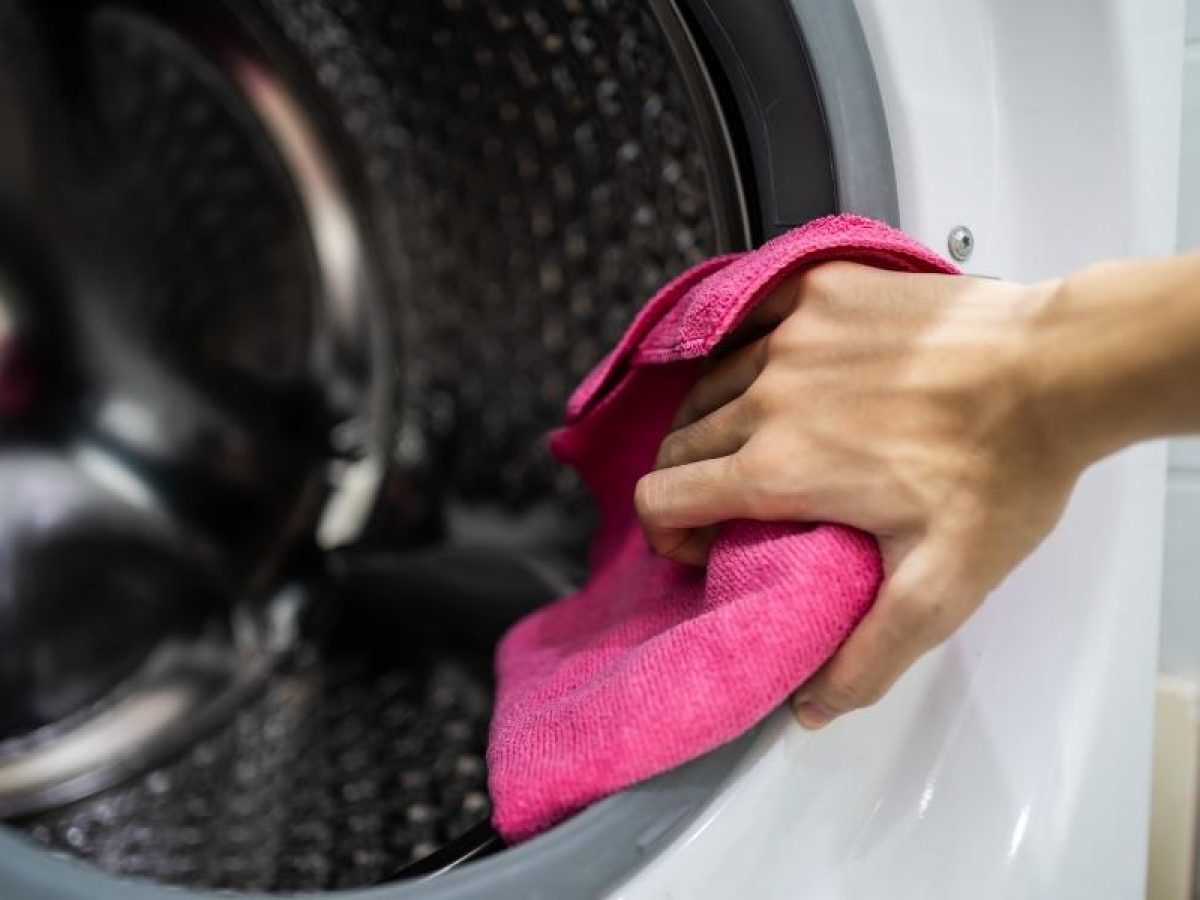
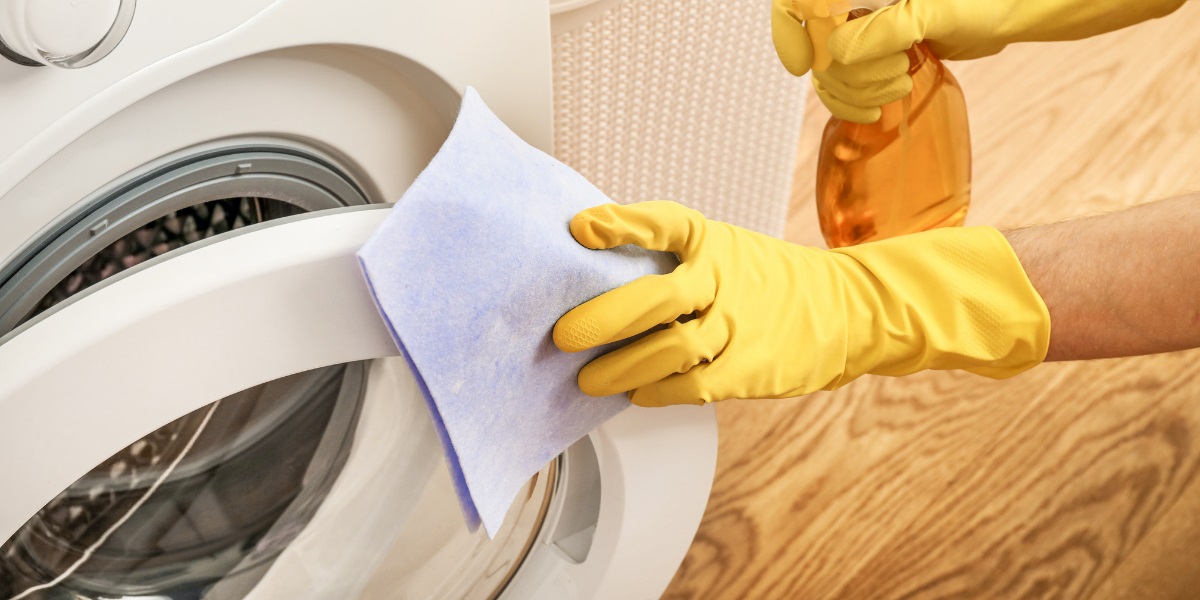
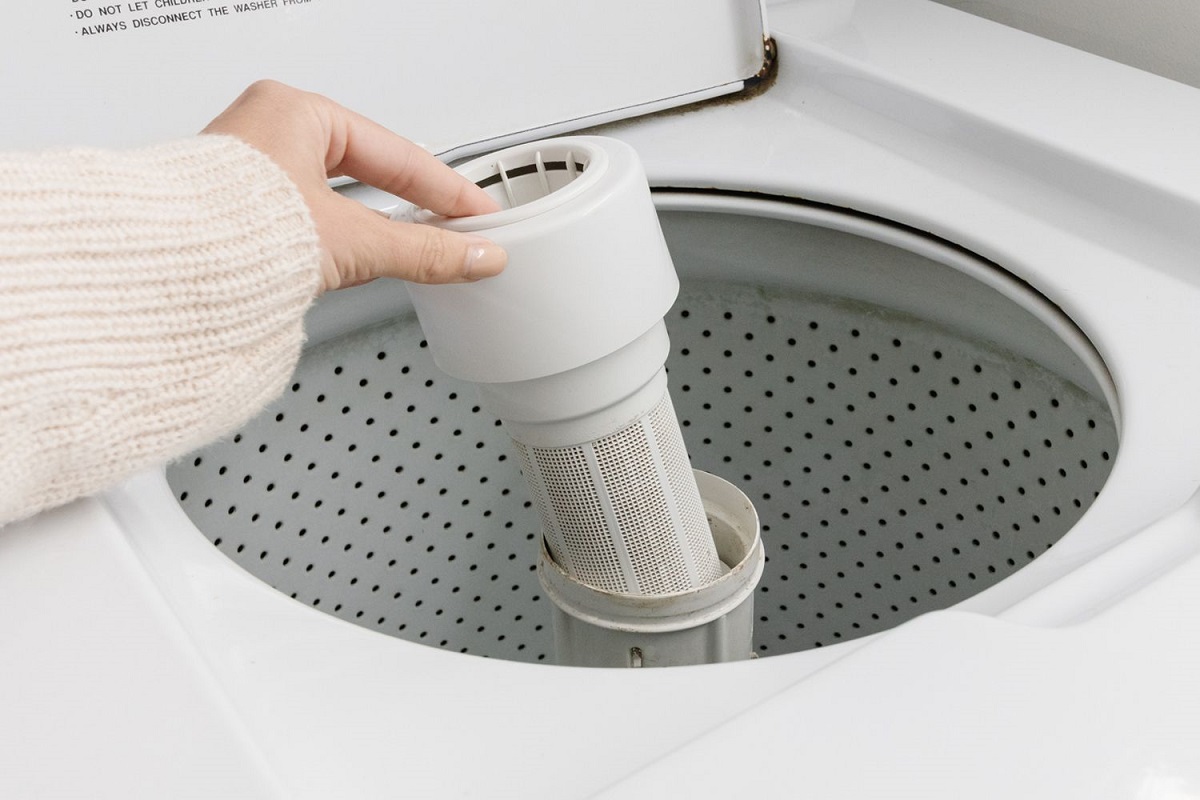
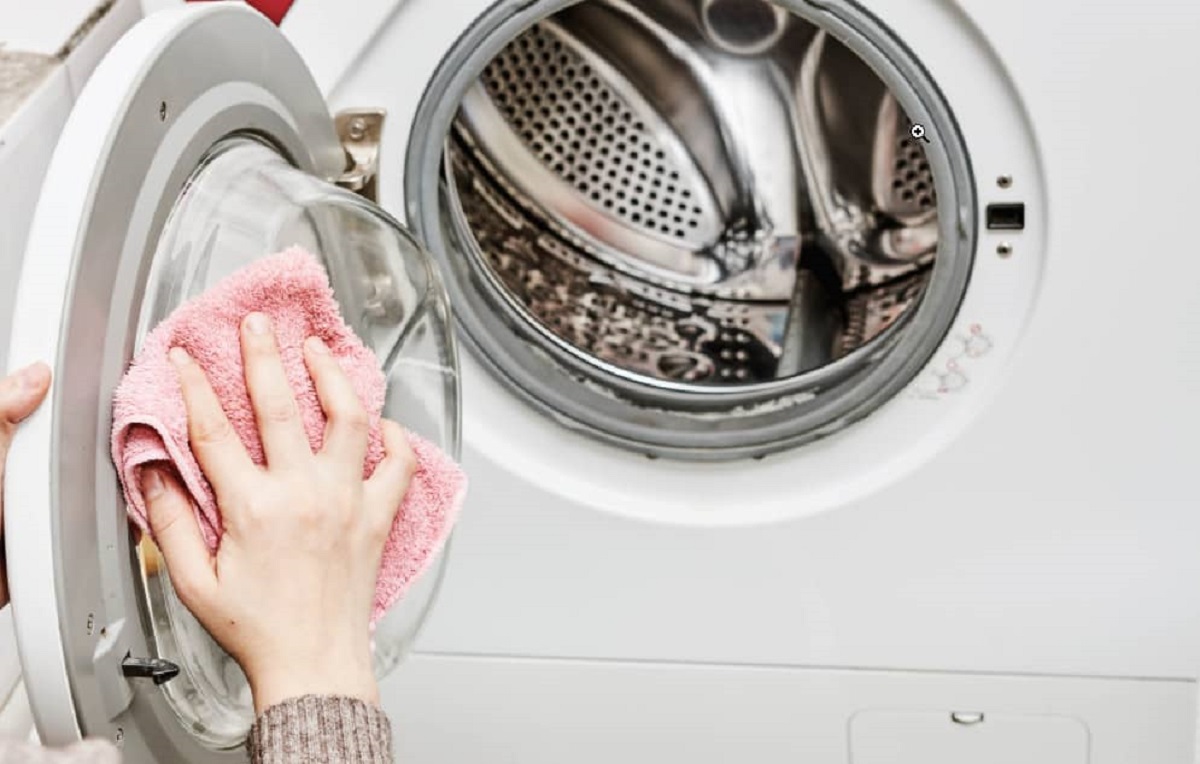
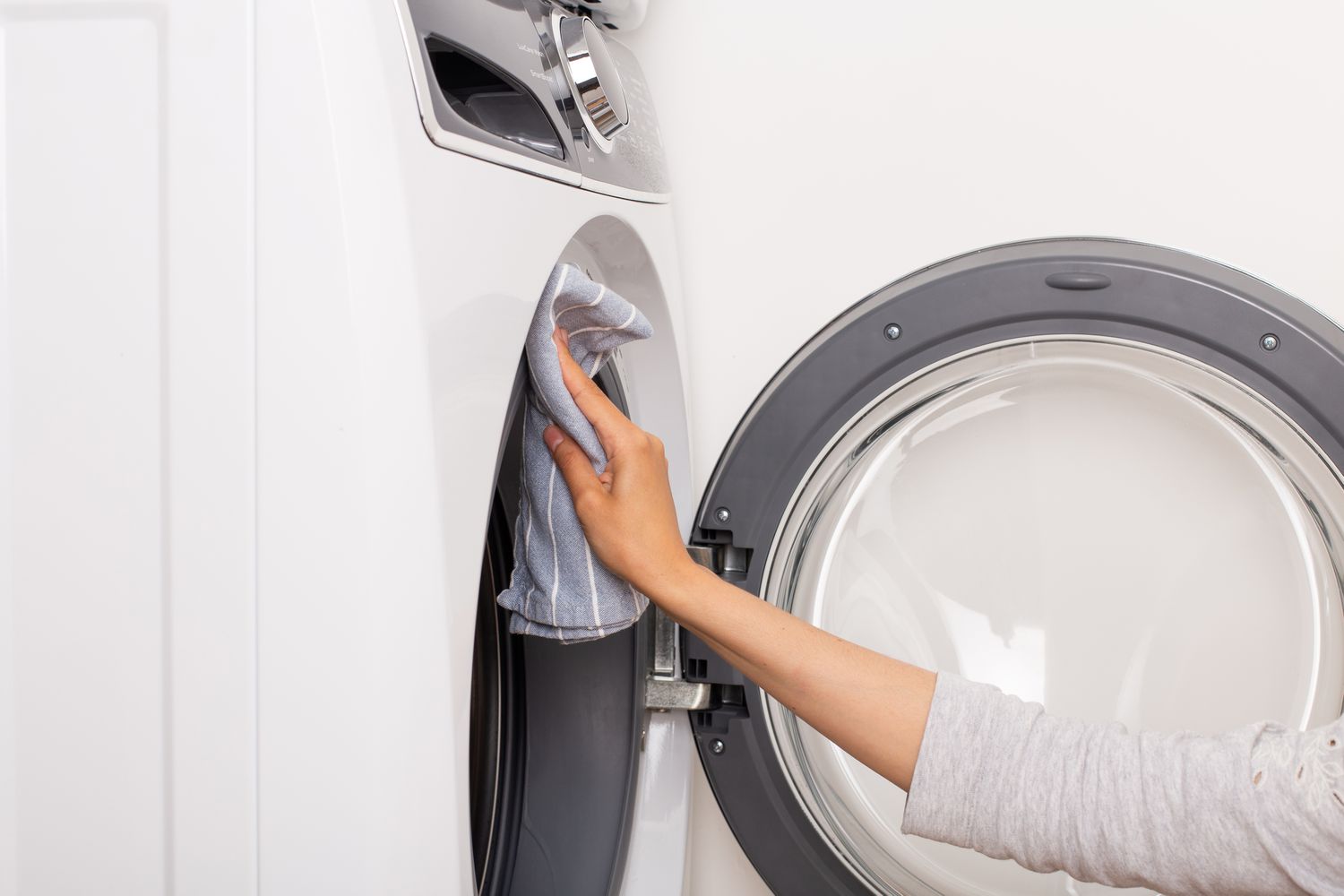

0 thoughts on “How To Clean A Washing Machine With Vinegar”